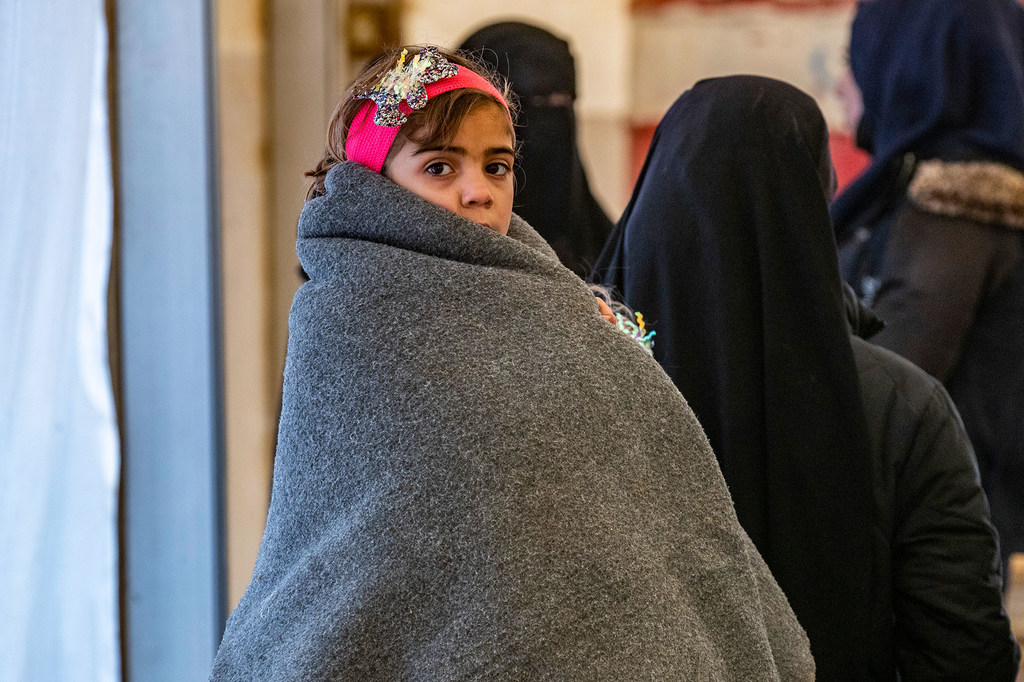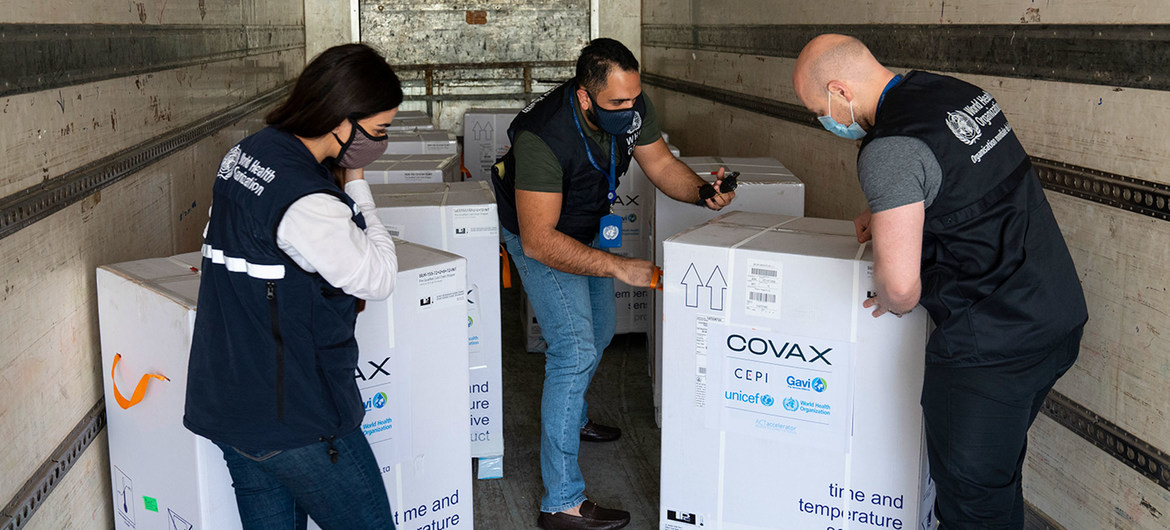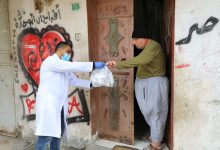Revived peace process, lasting calm, and a new constitution needed in Syria
 In addition to the challenges that all Syrians have faced during a 10-year conflict, women have experienced sexual and gender-based violence, early and forced marriage and trafficking, the country’s UN envoy told the Security Council on Wednesday.
In addition to the challenges that all Syrians have faced during a 10-year conflict, women have experienced sexual and gender-based violence, early and forced marriage and trafficking, the country’s UN envoy told the Security Council on Wednesday.
Against the backdrop of violence, terrorism, displacement, instability, destitution and COVID, Special Envoy Geir O. Pedersen said via video conference that as more men are killed and injured, women have had to become leaders of their households.
Noting that the Syrian Women’s Advisory Board met for the first time in a year, he pointed to their focus as what “many Syrians want to achieve for their country”, namely a renewed political process, lasting calm and a new constitution that “guarantees the rights and freedoms of all in Syria”.
“They want to see…a sustainable peace achieved with the meaningful participation of Syrian women, with women’s safety, basic needs, dignity, rights and equality at its core”, he stated.
Rise in hostilities
The UN envoy updated the Council on a significant escalation in skirmishes in the northwest; a “perennially unstable” southwest; ISIL terrorist attacks in the northeast and central Syria; and a “steady rise in hostilities” in several cities, among other deteriorating situations.
He warned that “it is all-too-easy to become immune to these kinds of developments – and the dangers they could lead to” and stressed the need to prioritize “the proactive search” for a conflict settlement.
Economic destitution
Mr. Pederson painted a picture of a decade of conflict, destruction, corruption and mismanagement along with the pandemic and sanctions, during which “food prices remain at historic highs” and unabated inflation.
“2.4 million are now food insecure – an increase of 4.5 million in the last year alone”, he said, adding that fuel shortages also remain “a key concern”.
Among other things, the UN official spoke of concerns on the deterioration of Syria’s social fabric and reiterated the Secretary-General’s appeal to avoid sanctions on allowing Syrians “to access food, essential health supplies and COVID-19 medical support”.
The UN envoy attested to a lack of “real progress” on prisoner releases, which have only been a trickle to date, and urged for immediate unilateral releases.
Underscoring the importance of “unblocking progress” on detainees and abductees, he also reiterated his appeal “to undertake meaningful actions on missing persons – at a scale that is commensurate with the scope of this tragic issue”.
International diplomacy
Mr. Pedersen argued for “more constructive and comprehensive international diplomacy” regarding Syria to “unlock” step-by-step progress.
He recognized the “mistrust” of some and you-move-first desire of others that is impeding progress but believed that “exploratory” discussions can help identify new resources and participants to promote peace.
“There is enough at stake and enough common interest for us to try”, said the UN envoy. “We should not lose further time in exploring this seriously”.
On the “Syrian-led and Syrian-owned” Constitutional Committee, he underscored the need for a political process that upholds resolution 2254, and urged that steps be taken to generate movement.
He conveyed the need for “constructive international diplomacy”, as the path “to help the Syrian people to navigate out of their terrible crisis and towards a better future that…restores Syria’s sovereignty, unity independence and territorial integrity”.
COVID conundrum
Meanwhile, Emergency Relief Coordinator and UN Humanitarian chief Mark Lowcock had five points to emphasize to ambassadors, beginning with the COVID pandemic.
While there has been some disagreement on the scale of infections, it is clear that cases are rising and accelerating – particularly at refugee camps.
The UN is providing PPE, training medical workers and helping to roll-out vaccinations he said, and last week, the first batch of UN-backed COVAX vaccines arrived with additional deliveries expected throughout the year to cover around 20 per cent of the population.
“But that’s obviously not nearly enough”, he said.

© UNICEF/Rami NaderSyria receives its first shipment of COVID-19 vaccines.
‘Historically high’ food prices
On the economic crisis, the Emergency Coordinator highlighted a “volatile exchange rate” that is making provisions difficult to afford in some regions.
As food prices overall “remain at historically high levels”, he said that food security assessments across the country show a worsening situation.
And ongoing fuel shortages are increasingly affecting humanitarian operations.
“Several field missions were cancelled this month because there wasn’t enough fuel to conduct them”, stated Mr. Lowcock.
Protection
The Emergency Relief coordinator shone a light on the recent deaths of four humanitarians, spelling out that “humanitarian workers…must be protected”.
He also highlighted “scandalous” conditions in Al-Hol – the largest camp for refugees and internally displaced people in Syria, where the families of many former ISIL extremists have languished for months.
Calling the situation there a “collective failure to protect women and children”, the UN official urged States to repatriate their nationals.
Turning to his fourth point, humanitarian access, the Emergency Coordinator underscored the importance of cross-border aid authorization.
“Every month, the cross-border operation reaches some 2.4 million people who depend on it for food, medicines, shelter and other vital supplies”, he said, calling it a “lifeline” that must not be severed.
UN delivery assistance
Finally, the relief chief draw attention to the Organization’s delivering of aid.
At the fifth Brussels conference on 30 March, pledges of $4.4 billion have helped sustain a “massive” UN -coordinated humanitarian operation that reaches some 7.7 million people every month around the country, he said.
But Mr. Lowcock added that additional resources and access are needed this year to assist 12.3 million Syrians



